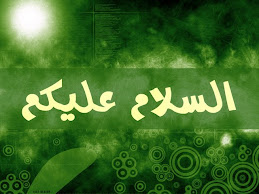
{we love our prophet}
Celebrating the Prophet’s Birth An Innovation of Guidance
Among the great innovations of guidance is the annual celebration of the Prophet’s birth (Mawlid un-Nabiyy). This event is commemorated by Muslims all over the world who join together for such rewardable deeds as reciting from the Qur’an, chanting Islamic praises, telling the story of the Prophet’s birth, teaching Religious Knowledge, slaughtering animals to feed to the poor, and gathering to thank and praise Allah and ask Him to exalt the honor of Prophet Muhammad, sallallahu ^alayhi wa sallam. The honorable, knowledgeable, and righteous ruler: al-Mudhaffar, the King of Irbil{1}, initiated this practice about 900 years ago, and he was praised by Muslim scholars of Islam--among them the Egyptian hafidhs: Ibn Hajar al-^Asqalaniyy and Jalal ud-Din as-Suyutiyy. The famous scholar of hadith, Abul-Khattab Ibn Dihyah, wrote a book for the king especially to be read during the mawlid celebration, and there are no great Muslim scholars who dispraised this innovated celebration.
The basis for commemorating honorable events repeatedly every year is evidenced in the Sunnah of the Prophet. As related by al-Bukhariyy, when the Prophet emigrated to al-Madinah he found the Jews fasting, so he asked them why they fasted on the 10th of Muharram. They told the Prophet they do so to commemorate the day Allah saved Prophet Moses (Musa) and the Tribes of Israel (Isra’il) from the tyranny of the Pharaoh. It was revealed to the Prophet what the Jews said was true, so Prophet Muhammad told them: "We are more deserving of Moses (Musa) than you." He said this because Prophet Moses (Musa) was Muslim. Prophet Muhammad ordered the Muslims to fast the 9th and 10th of Muharram, and this Sunnah is still practiced today.
To celebrate the birth of the Prophet by doing rewardable deeds-- that can be done on any day of the year--is considered an innovated practice because this was not done at the time of the Prophet. Although this innovation was praised by the Muslim scholars of Islam, some people consider any innovation an innovation of misguidance. Those who consider any innovation an innovation of misguidance have been misled, because there are two sahih hadiths which support celebrating such an event. Imam Muslim related, through the route of Jarir Ibn ^Abdullah, the Prophet said:
من سن في الإسلام سنة حسنة فله أجرها وأجر من عمل بها إلى يوم القيامة لا ينقص من أجورهم شيء ومن سن في الإسلام سنة سيئة فعليه وزرها ووزر من عمل بها إلى يوم القيامة لا ينقص من أوزارهم شيء
which means: <
What complies with the Qur’an, the Sunnah, the Ijma^ (scholarly consensus), and the sayings and practices of the Companions is an innovation of guidance, and what contradicts the Qur’an, the Sunnah, the Ijma^, and the sayings and actions of the Companions is an innovation of misguidance. This definition of the two types of innovations was given by many knowledgeable and trustworthy scholars of Islam; among them Imam ash-Shafi^iyy, Imam an-Nawawiyy, al Bayhaqiyy, and the Hafidh, Ibn Hajar al-^Asqalaniyy.
It is apparent Muslims have not gone astray in celebrating the birth of the Prophet, based upon the aforementioned hadith, because the deeds practiced during this event are considered rewardable by the standards of the Religion, and in line with the definition of innovations of guidance.
Since the time of the Prophet, many innovations have been adopted. Remembering the birth of the Prophet by doing rewardable deeds is a praise-worthy innovation. It is an honorable event and special to Muslims throughout the world. We rejoice in being members of the greatest nation of Islam--the nation of Muhammad--who was the best Prophet and the best creation of Allah. In Surat Al ^Imran, Ayah 110, Allah said:
كنتم خير أمة أخرجت للناس تأمرون بالمعروف وتنهون عن المنكر وتؤمنون بالله
which means: [You are the best of nations brought forth to the people; bidding the lawful (ma^ruf) forbidding the unlawful (munkar), and believing in Allah.] This verse means this nation is the best of nations by virtue of its Prophet," as explained by the scholars of Islam. Muslims are thankful to Allah for the blessings of Islam and for being among the followers of Muhammad. In Surat Al ^Imran, Ayah 31, Allah said:
قل إن كنتم تحبون الله فاتبعوني يحببكم الله
which means [If you love Allah, then follow the Prophet, and Allah will love you.] It is fitting to honor the Prophet. The Mawlid (the celebration of his birth) has a great benefit: it inspires the heart to have a more profound love for the Prophet.



No comments:
Post a Comment